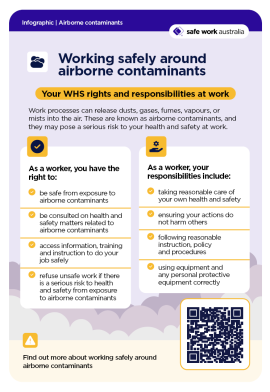
Downloads
Australia is transitioning to the Workplace exposure limits for airborne contaminants (WEL list). Until 1 December 2026, you must still comply with the Workplace exposure standards for airborne contaminants (WES list). Contact your work health and safety regulator for further information.
Infographic content:
Working safely around airborne contaminants: Your WHS rights and responsibilities at work.
Work processes can release dusts, gases, fumes, vapours, or mists into the air. These are known as airborne contaminants, and they may pose a serious risk to your health and safety at work.
As a worker, you have the right to:
- be safe from exposure to airborne contaminants
- be consulted on health and safety matters related to airborne contaminants
- access information, training and instruction to do your job safely
- refuse unsafe work if there is a serious risk to health and safety from exposure to airborne contaminants
As a worker, your responsibilities include:
- taking reasonable care of your own health and safety
- ensuring your actions do not harm others
- following reasonable instruction, policy and procedures
- using equipment and any personal protective equipment correctly
Find out more about working safely around airborne contaminants.
Additional Resources:
Publication Date:
Last updated:
Publication type:
